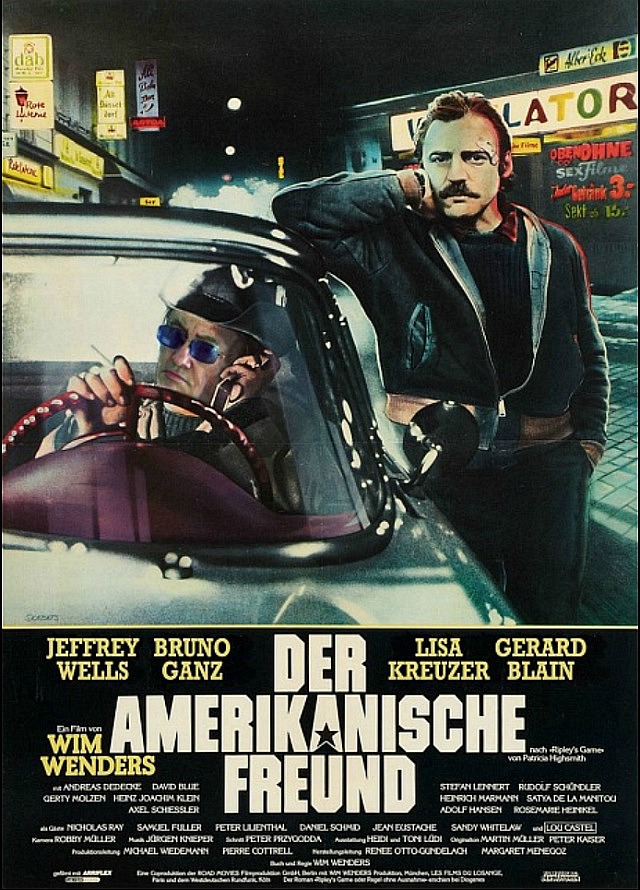Less posting than usual today because I’m trying to watch three in a row — (1) Alexander Nanau‘s Collective, (2) Emerald Fennell‘s Promising Young Woman (Focus Features, 12.25) with Carey Mulligan, and (3) R.J. Cutler‘s Belushi, which premieres tomorrow night on Showtime.
Day: November 21, 2020
Son of Friendly Fire
Originally posted on 9.4.15: I’ve been debating whether or not to reveal an embarassing thing that happened in the late ’80s, and I realized this morning that I need to just flush it out. Always a good thing to expose disturbing, uncomfortable memories. So here goes.
I took part in a paintball game when I was working at Cannon Films in the summer of ’87. I had suggested some bold, George S. Patton-type strategies to my fellow warriors, but when you actually get out there with your paintball gun in that sticky and sweltering Los Angeles heat and you’re dealing with dust and sweat and the sobering fact that you’re not exactly Steve McQueen in Hell Is For Heroes, things are a little different. The Cannon team lost that day, and I was one of the reasons.
I’m just going to spit this out. We were losing and I was in a bad position, surrounded by the opposing team and anxious and furious that we were getting clobbered, and in my haste and rage I saw someone appear in the corner of my left eye and I whipped around and fired. I shot one of our own guys. Actually it was a woman. I got her in the arm…thwack! She let go with a loud and angry “aaggh!” She was expressing two things: (1) “That hurts!” and (2) “You just shot someone on your team…asshole!”
Guilty Confession
My first viewing of Wim Wenders‘ The American Friend was at the 1977 New York Film Festival, or sometime in late September of that year. Simultaneously bleak and haunting, a moody European noir, wry and cool and even sexy at times, it connects you with every existential dark-night-of-the-soul phase you’ve ever tasted first-hand in your actual life.
The late, great Bruno Ganz (with whom I felt an instant rapport during an ’04 Downfall junket interview) and Dennis Hopper gave the most iconic performance of their careers, and Robby Muller‘s chilling but wonderfully eerie cinematography…forget about it. And composed, of course, in HE’s all-time favorite aspect ratio of 1.66:1.
Several hours ago I discovered that a certain someone in our home (possibly myself) had accidentally turned on the Sony 4K’s Motion Flow viewing option, which we all understand is a huge aesthetic no-no. I realized this as I began watching The American Friend last night, not off my cherished Criterion Bluray but via HBOMax streaming.

Now the tough part: The motion-flowing of Muller’s cinematography (i.e., frame interpolation or black frame insertion) made it look extra-delicious. Sharper, cleaner, more luscious and immediate with those vaguely video-like (but mostly film-like) textures — I couldn’t get over how my love for this ace-level classic seemed to have been completely renewed.
I’m a bad person, I’m a bad person, I’m a bad person, etc.
HE to self: “This isn’t what Muller and Wenders prepared and approved. It’s a gussied-up distortion so how could you even think that it looks good on some level, whatever that level might be? Ask David Fear or Eric Kohn or any scholastically correct film critic in the country, and they’ll condemn motion smoothing to a man.”
Let me be clear that conceptually HE condemns motion-smoothing without the slightest equivocation. It’s not how films should be seen.
Except, that is, for the awkward fact that I half-loved watching the smoothed-out Friend. Not in a historical, politically attuned, get-with the program sense, but on a deep down, kid-in-a-candy-store level. God forgive me, God help me, beat me with sticks, etc.
